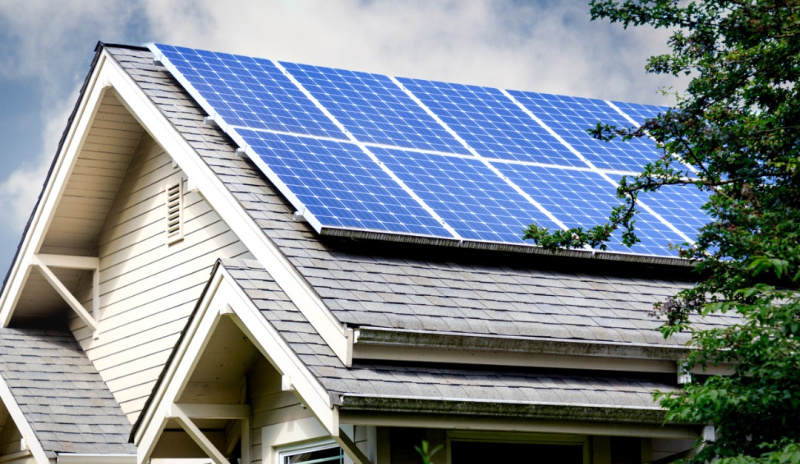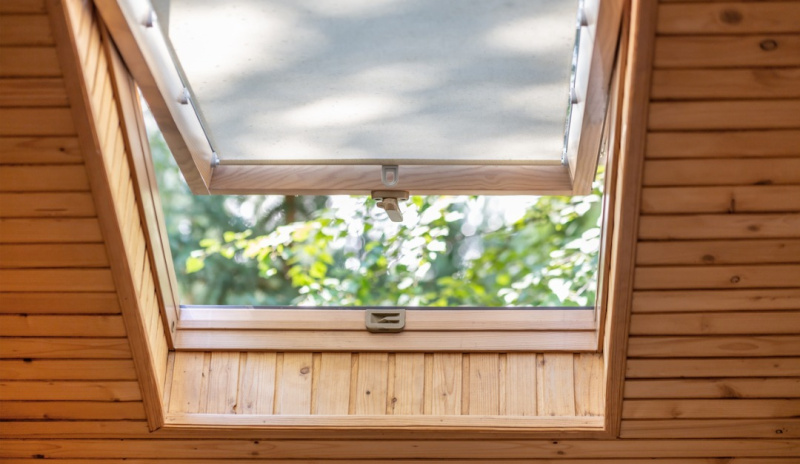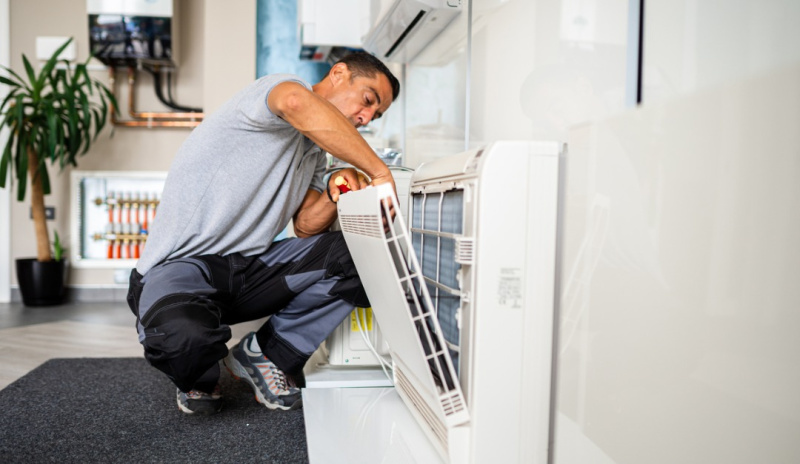Today's Top Real Estate News
Provided by RISMedia News
02/14/2026
Everything You Need to Know About Moving Out
November 24, 2023

From staging and listing your home, navigating showings and open houses, negotiating the offer, and waiting out the appraisal and inspection, selling your home can feel never-ending. However, before you know it, it will be move-out day, a day filled with many emotions. So before you pack up the moving truck, read on for everything you need to know about moving out of your home.
Start early
Before you officially list your home, it’s helpful to begin assessing your belongings to determine what will come with you when you move and what you can part with. Separating items into groupings that can be thrown out, donated, or consigned will help you streamline your belongings to result in a more straightforward moving process. Ideally, by the time you’re ready to pack your home, all you’ll have to do is pack up the items you’re taking with you.
Moving quotes
Contacting at least three companies for quotes before you hire a moving service will help you assess the best moving company for your situation. Additionally, consider if you want to pack your belongings yourself or prefer the moving service to pack up your belongings for you. If you’re packing your own items, remember to order your moving supplies so you have enough boxes, bubble wrap, tape, and packing paper to pack your belongings thoroughly. Any moving service you contact should be licensed and insured.
Create a packing plan
Before packing, create a plan so your belongings are packed strategically and cohesively. Packing up one room at a time in clearly marked boxes will allow you to move through the house and check off one room at a time. In addition, packing your essentials together will make it easier to unpack when you move in. For example, in the kitchen, you can pack up a box of items you’ll need immediately, such as glasses, silverware and plates. On the other hand, you can likely wait a few days to unpack your servingware or bakeware.
Packing a moving day box and a suitcase can help you transition into your new home more seamlessly. A suitcase that includes your necessary daily essentials, including your toiletries, pajamas, bed sheets, several changes of clothes, medications, and your valuables, will help you avoid digging through boxes to find the essentials you need to shower and go to bed after a long day of moving. Instead, you can pack the essentials in a moving day box to make your moving day easier. This may include garbage bags, scissors, essential tools, light bulbs, toilet paper, and paper towels.
Make plans for children and pets
Since moving days can be chaotic, arranging childcare and pet care can help the day go more smoothly, help them stay safe, and lessen any moving anxiety. Moving day comes with risks, such as different vehicles and people in and out of the house, uncovered outlets, open windows and doors, and sharp tools such as scissors and box cutters.
Deep clean
While most contracts require the house to be broom swept, hiring a deep cleaning service is an appreciated courtesy for new homeowners. A deep cleaning service will clean the areas of your home you may have overlooked and is also one last task you must complete.
Cancel utilities and internet
Before moving day, contact your utility companies, such as the electric, gas, and water companies and the internet service provider, to establish a last day of service.
Published with permission from RISMedia.
Should You Install Solar Panels on Your Roof?
November 24, 2023

High utility bills strain the budgets of many homeowners. Installing solar panels can significantly reduce the amount you spend on electricity. Before you decide whether to put solar panels on your roof, consider both the benefits and the downsides.
Environmental Impact
Using fossil fuels to generate electricity can harm the environment. In addition, fossil fuels are in limited supply.
Sunlight is a renewable source of energy. Fueling the appliances in your home with solar energy can allow you to reduce your reliance on fossil fuels. That can have a positive impact on the environment.
The mining of materials and the manufacturing of solar panels also emit greenhouse gasses. In the long run, however, the use of solar energy has less of a negative environmental impact than reliance on fossil fuels.
Upfront Cost and Long-Term Savings
The cost to install solar panels can be steep, but you might qualify for government incentives that can offset part of the initial expense. As solar technology has improved, the cost of solar panels has come down. Prices are expected to keep falling in the future.
Generating your own electricity can allow you to reduce or eliminate your reliance on an electrical grid. That can save you money each month. If you intend to live in your house for several years, you’ll be able to break even on your initial investment and then continue to reap the financial benefits for years after that.
Solar panels are easy and affordable to maintain. You’ll need to have professionals clean and inspect them regularly, but the cost is low compared to other forms of home maintenance.
Ability to Store Energy
If you install solar panels on your home, you’ll be able to store excess electricity that you can use on rainy or overcast days when there’s little or no sunlight. If you generate more electricity than your family uses, you might be able to sell it to your local utility company for other local consumers to purchase. That can reduce your community’s reliance on fossil fuels. The ability to earn money on your investment can also make installing solar panels a more financially attractive option.
Impact on Property Values
Energy efficiency and concern for the environment are important to many homebuyers. A house with solar panels can be particularly appealing to eco-conscious buyers and those who want to keep their utility costs down. If you install solar panels, you’ll get to enjoy financial savings while you live in your home and get a higher price when you sell it.
Weigh the Costs and Benefits
Generating solar energy can pay off financially and reduce your family’s environmental impact. The upfront cost can be high, but you might decide that the long-term savings would make it worthwhile. Compare the price of solar panel installation to your potential savings so you can make an informed decision.
Published with permission from RISMedia.
How to Choose the Right Vehicle for Your Teenager
November 24, 2023

Getting a driver’s license is exciting for teens, but it can be a source of worry for parents. You might fear that your child will get into an accident, or you might be concerned about how the cost of car insurance will affect your family’s budget.
Be Practical
Your child might dream of driving to school in a brand-new sports car outfitted with impressive features, but that would be expensive, unnecessary and unwise. Your teenager needs a safe and reliable vehicle to get from Point A to Point B. When searching for a car for your family’s newest driver, focus on practicality and affordability.
For many families, a new car is simply too expensive. You can find a reliable used vehicle that’s relatively new, has most or all of the same safety features as the latest model, is in good condition and costs significantly less than a brand new one.
Find a Safe Vehicle
Young drivers are inexperienced, and they also tend to drive too fast and get distracted. That makes teenagers more likely to get into accidents than older drivers.
When you begin your search for a car, focus on safety ratings. Look for a vehicle with features such as emergency braking and sensors that can detect when your child drifts into the wrong lane. Find a vehicle that’s designed in a way that will reduce the risk of injuries should a collision occur.
Get a Car That Your Teen Will Be Comfortable Driving
Look for a vehicle that will be relatively easy for a young and inexperienced person to operate. That will make driving less stressful for your child and reduce the risk of an accident. For example, you should avoid a large car or an SUV that will be difficult to maneuver.
Buy a Reliable Vehicle
Reliability is important whenever you’re searching for a vehicle. If you’re going to buy a used car, have a mechanic you trust inspect it and tell you if it has any serious issues. If you’re planning to purchase a new vehicle, look for a make and model with a reputation for reliability, as well as a good warranty.
Consider Insurance Costs
Don’t forget to factor insurance premiums into your decision. Rates for young drivers tend to be significantly higher than they are for adults. The type of vehicle you choose and the safety features it has can also impact your premiums. Once you’ve narrowed down your search to a handful of vehicles, contact your insurance company or agent to get quotes and decide which car will be the best choice.
Published with permission from RISMedia.
Don’t Underestimate How Much It Will Cost to Sell Your House
November 23, 2023
.jpg)
As you prepare to sell your home, you’re probably thinking about the price a buyer will be willing to pay for it. You might not be focusing on how much it will cost to spruce up the property, find a buyer, and seal the deal. These are some of the top expenses you’ll have to cover.
Staging
Dirt, dust, clutter, and outdated furniture can make it difficult or impossible to sell a house. Before you put your home on the market, you should have it cleaned, remove family photos and other personal items, and decorate it with furniture that creates a positive impression. Professional staging can be costly, but it can make your house appealing to buyers and help you sell it quickly.
Repairs
Buyers want a house that’s in good condition and ready for them to move in. If your home has any health or safety issues, you should address them before you list the property. You should also apply fresh paint and consider other upgrades, such as installing new carpet, refinishing hardwood floors, and replacing kitchen hardware. The cost for those types of projects can add up, but the investment can help you attract a buyer.
Pre-Listing Inspection
A buyer who’s interested in your house will most likely have it inspected before moving ahead with a purchase. If the inspector notes any serious problems, the buyer can ask you to make repairs, request a price reduction, or walk away.
You’re not required to get your home inspected before you list it, but doing so can help you avoid a problem later. If the inspection reveals a significant issue, you’ll be able to take care of it before you put your home on the market. A pre-listing inspection can cost several hundred dollars.
Landscaping
Curb appeal is critically important when selling a home. You might need to hire a landscaper to mow the lawn, rake leaves, trim trees and hedges, plant flowers, or spread grass seed to fill in bare spots on the lawn.
Real Estate Agent Commissions
The seller generally pays commissions for both the seller’s and buyer’s agents. Commissions are a percentage of the sale price and are typically several thousand dollars.
Closing Costs
You’ll have to pay for title insurance, taxes, and other expenses to sell your home. In some cases, you’ll be able to negotiate fees or shop around and find competitive rates, but other charges will be non-negotiable.
Budget for Home-Selling Expenses
Selling your house can be expensive. Factor these and other costs into your budget. When you think about the amount you should put down on your next home, consider how much you’ll have to spend to sell your old one and plan accordingly.
Published with permission from RISMedia.
What Type of Oven Should You Choose?
November 23, 2023

If your oven needs to be replaced, you don’t necessarily have to get one that’s the same as your old model. Conventional ovens are popular, but you might want to consider getting a convection oven.
How Conventional and Convection Ovens Work
A conventional oven, which is what most people are familiar with, heats food from the bottom up. A convection oven, on the other hand, uses a fan to circulate hot air and heat food from all sides.
Since a convection oven uses a fan, it’s noisier than a conventional oven. Both types of ovens are available in electric and gas models.
How Your Cooking Experience Can Differ
When cooking with a conventional oven, you have to place the food in the center and keep an eye on it to make sure that it doesn’t burn, especially on the bottom. There’s a much lower risk of burning food in a convection oven since it cooks more evenly. You can place food anywhere, and you can cook multiple dishes at once, as long as you don’t block the fan.
Because it relies on air circulation, a convection oven can cook food faster and at a lower temperature than a conventional oven. Recipes are generally written assuming that a person will be using a conventional oven. If you have a convection oven, you’ll need to reduce the temperature and cooking time listed in a recipe.
If you like meat and vegetables that are crispy on the outside and soft on the inside, you’ll find that’s easier to achieve with a convection oven since it heats food from all sides. Convection ovens are also good for baking denser desserts, such as pies and pastries, because they can create a flaky outside and a soft inside.
How Costs Compare
The initial cost of a convection oven can be significantly higher than that of a conventional oven. On top of the cost of a convection oven itself, you might need to have a ventilation system installed. In addition, you might have to get some new cookware, such as rimless baking sheets, so air can circulate freely.
Conventional ovens tend to be easy to maintain, durable and long lasting. If they break down, repairs are generally straightforward. A convection oven has more parts that require maintenance and that might need to be repaired.
How to Figure Out Which Is Right for You
If you can afford the upfront cost, a convection oven can save you money in the long run. Since it requires lower temperatures and shorter cooking times than a conventional oven, a convection oven can reduce your monthly utility bills. A convection oven might also be a good choice if you have a large family, like to entertain or don’t have much experience with cooking. If you’re on a tight budget or you just want to stick with what’s familiar, you can go with a conventional oven.
Published with permission from RISMedia.
Obedience Training Tips for Dog Owners
November 23, 2023

Having a dog can be an incredibly rewarding experience. It can also be incredibly frustrating if your pet doesn’t obey commands or repeatedly does things that it shouldn’t. Here are some tips on how to train your dog.
Start Early
The sooner you begin training your dog, the better. It will be much easier to teach your dog desirable behaviors right after you bring it home than to let it develop bad habits, then try to modify its behavior later.
Use Positive Reinforcement
Praising and rewarding your dog for good behavior will be more effective than punishing it for unwanted behavior. If your dog responds correctly to a command or behaves in a positive way, provide a reward.
Different dogs respond well to different rewards. Some love treats, while others prefer a toy or a game of fetch. Figure out which reward(s) work best with your pet.
When training your dog, be enthusiastic and use a positive tone of voice. Dogs are eager to please. If your pet understands that it made you happy, it will be more likely to repeat the behavior.
Reward Small Improvements
Learning anything is a process. Don’t be frustrated if your dog doesn’t do exactly what you want it to do the first few times you try to teach it something new. Instead, reward your dog whenever it takes a step in the right direction. Those small improvements will add up.
Use Short, Frequent Training Sessions
Trying to teach your dog too much at once, or devoting long periods of time to training, can backfire. Your dog will learn better if you work on obedience training a little at a time, several times per day. Give your dog occasional commands and provide rewards when it responds appropriately.
Work on obedience training in different places and situations. For example, give your dog commands when you’re in the house, in the yard, in the car and at the park so it will learn to follow commands in a variety of settings, even when there are distractions.
Be Consistent
Dogs can become confused if they’re given different commands or if some people allow behaviors that others don’t. Make sure that every member of your family is on the same page as far as what behaviors are and are not allowed. When asking your dog to do something, such as sit or stay, make sure that everyone uses the same command.
Use Both Verbal Commands and Hand Signals
Your dog might not understand or respond to verbal commands alone, at least at first. Using hand signals can help your pet understand what you want it to do. You can incorporate both verbal commands and hand signals in your training sessions.
Get Professional Help
If your dog doesn’t respond well to these strategies or you’re struggling to figure out how to deal with a particular behavior, consult a dog trainer. Professionals have experience addressing a wide range of issues. A trainer might recommend group classes or individual sessions.
Published with permission from RISMedia.
Should Kids Take Multivitamins?
November 22, 2023

If you have a child who’s a picky eater or who is smaller than other kids the same age, you might be concerned that he or she isn’t getting enough of essential nutrients. Under some circumstances, kids might have to take vitamin supplements, but you should consult a medical professional if you have questions or concerns about your child’s health.
Your Child Might Be Getting Plenty of Vitamins From Food
It’s best to get nutrients from food whenever possible. Most kids, even picky ones, get the vitamins and minerals they need from food.
If you offer a variety of healthy meals and snacks, your child should be able to get enough nutrients. Keep in mind that many foods, such as milk, juice, bread and cereal, are fortified with vitamins.
Some Children Can Benefit From Vitamin Supplements
Kids who are developing at a slower than normal rate, who have allergies or some other medical conditions, or who follow a vegetarian or vegan diet might have one or more vitamin deficiencies. In that case, taking vitamin supplements can be helpful.
Before you assume that your child needs to take vitamins, consult your pediatrician or a dietician. A medical professional can look at the big picture, including your child’s diet, the results of lab work and any medical conditions your child has or medications your child takes. A healthcare provider might recommend supplements or might tell you that your child is healthy and is growing and developing at a normal rate.
Be Careful When Giving Vitamins to Kids
If a medical professional recommends giving your child supplements, make sure that you know which vitamins your child needs. A multivitamin contains several vitamins, but your child might only be deficient in one area. Consuming more than the recommended daily amounts of some vitamins can lead to health problems, such as digestive upset, nausea, headaches and harmful interactions with medications.
Only give your child a vitamin that’s designed for children. Kids have different dietary needs than adults. Supplements that are meant for adults can provide larger amounts of some vitamins than children’s bodies can handle.
Keep supplements out of your child’s reach. Often, vitamins look and taste like candy to make them appealing to kids. Explain in age-appropriate terms that vitamins are medicine meant to keep your child healthy, not candy and that eating more than the recommended amount could make your child sick.
Consult a Healthcare Professional
Parents want to keep their kids healthy, but providing multivitamins is usually unnecessary. Most kids get enough of the nutrients they need from food. Before you give your child supplements, consult your healthcare provider.
Published with permission from RISMedia.
Should You Install Skylights in Your House?
November 22, 2023

If you wish that one or more rooms in your house had more natural light, installing skylights might be the solution. Skylights can make your house brighter and raise its value, but they also have drawbacks.
Reasons to Install Skylights
With one or more skylights in the ceiling, you’ll get to enjoy the mental health benefits of sunlight and views of the sky. A room that’s currently dark, cramped and uninviting can suddenly feel more spacious and appealing.
Using several lamps to illuminate a room can be expensive. If you install skylights, you’ll be able to rely more on natural light and enjoy lower utility bills.
If you would like to use your attic as a living area, but it’s not currently outfitted with electricity, hiring an electrician to install wiring and outlets can be expensive. Skylights might be able to provide the illumination you need at a comparable or lower upfront cost. Once skylights are installed, you’ll get to take advantage of free light from the sun.
A room that isn’t located along an exterior wall doesn’t have any windows, and adding windows isn’t an option. Installing skylights can provide the natural light you crave. If you choose venting skylights, you’ll also be able to take advantage of fresh air in a room that would otherwise have poor ventilation.
The things that make skylights appealing to you can also make them attractive selling points. If you decide to put your home on the market in the future, the promise of natural light and utility savings can draw in potential buyers. In a competitive market, buyers might be willing to pay more for your home than they would for comparable properties.
Potential Problems
If skylights aren’t properly installed and sealed, they can leak when it rains or snows. Even a small amount of water can cause major damage to your roof, insulation, drywall, flooring, furniture and electronics. Moisture can also lead to the proliferation of mold, which can have serious health consequences for your family. In addition, the increased risk of roof leaks might cause your homeowners insurance premiums to rise.
Letting in more natural light has its drawbacks. The sun’s UV rays can gradually damage your flooring, furniture and artwork.
Installing skylights can be an expensive project. If you have enough wall space available, you might find that having contractors install traditional windows would provide the same benefits at a fraction of the cost.
Are Skylights Right for Your Home?
Skylights can make your house more comfortable for your family and save you money on your utility bills. They can also make your home stand out if you decide to sell it in the future.
Before you hire a company to install skylights, get estimates from several local contractors. Price is an important factor, but it shouldn’t be the only one you consider. Research companies and hire a reputable contractor with experience installing skylights so you can avoid water damage and other problems in the future.
Published with permission from RISMedia.
How Often Should You Replace Your HVAC Filters?
November 22, 2023

Your heating and air conditioning system has one or more filters located inside air ducts. Those filters trap dirt, dust, pet hair and other contaminants to keep them from entering the HVAC system or getting spread through the house as air circulates.
If a filter is dirty and clogged with debris, the HVAC system can’t work as efficiently as it should. That can lead to high utility costs, a breakdown and expensive repair bills. This is why it’s important to inspect your air filters regularly and clean or replace them as needed.
When to Change Your HVAC Filters
HVAC filters typically need to be replaced or cleaned about every three months. This is only a general guideline. You might have to replace your filters more or less often.
If you have one or more pets, your air filters can quickly get clogged with hair and dander. You’ll need to change them often, especially if your pets shed a lot. If you live in a dry, dusty area or a city with pollution, or if you have an older HVAC system, you’ll need to replace your filters frequently.
The ages and health of your family members and the number of occupants can influence your maintenance schedule. If you have a young child, a person with allergies or asthma, or a large family, you’ll have to replace your HVAC filters more frequently than the manufacturer recommends.
How often you use your house and HVAC system will determine how often the filters will need to be changed. You’ll have to replace the filters in your primary residence more often than the ones in a vacation home. In the winter and summer, when you use your HVAC system every day, you’ll have to replace the filters more frequently.
The type of air filters you use is another important factor to consider. Fiberglass filters generally need to be replaced more often than pleated filters.
Use the Right Type of Filter
If you need to replace an HVAC filter, make sure that you’re using a new filter that’s appropriate for your system. Air filters have a minimum efficiency reporting value (MERV) that rates how well they trap contaminants. A filter with a higher MERV rating can trap smaller particles than a filter with a lower rating.
Choosing a filter with a higher MERV rating isn’t always beneficial. Using a filter that’s not appropriate for your HVAC system can make it work less efficiently and reduce indoor air quality.
Inspect Your Filters Regularly
Replacing HVAC filters is a home maintenance task that’s critically important, easy to do and often overlooked. Check the condition of your air filters once a month. If you hold a filter up to a light source and light can’t pass through, it’s time to replace the filter. After you’ve lived in your house for a while, you’ll be able to figure out a replacement schedule that works for your home and your family.
Published with permission from RISMedia.
Being Flexible With Showings Can Help You Sell Your Home Fast
November 21, 2023

Buyers might be intrigued by photos of your home, but they’ll need more information before they decide whether to make an offer. Potential buyers will want to visit the house to figure out if it would be right for them. Although you have the right to only allow showings at times that are convenient for you, being flexible can help you find a buyer fast.
Accommodate a Wide Range of Schedules
Some buyers will only be able to view your house in the morning, while others will only have an opportunity in the evening. Some people have hectic weekday schedules and can only fit in a viewing on a weekend. Buyers who are visiting from another state might only be in the area for a short amount of time.
If an interested buyer is unable to see your house because you limit the times when it’s available for showings, you might miss out on a sale. You have no way of knowing if that person would have fallen in love with the house and made an offer.
Being flexible with showing times can help you accommodate different people’s schedules and constraints and maximize the number of buyers who can view your house. You might get an offer quickly, and you might even receive multiple bids and sell the house for more than your asking price.
Remember That the Inconvenience Will Be Temporary
It can be a hassle to make your home available for showings during a large block of time every day, especially if you have kids who are used to their daily routines. The disruptions can be stressful for the entire family, but it will be a temporary situation. Accommodating potential buyers as much as possible can help you sell your house quickly.
Require a Reasonable Amount of Notice
Some sellers only require interested buyers to give a short amount of notice before showings, while others require showings to be scheduled at least a day in advance. The less notice you require, the easier it will be for interested buyers to view the property.
Limit the Amount of Stress for Your Family
Preparing for possible showings can make things less stressful when a buyer wants to visit your home. Stay on top of dishes, laundry and toys and make sure the beds are made so you won’t have to do a lot of tidying up before a showing.
If you have kids, think of places where you can go as a family, such as a local park or restaurant, while buyers are viewing your house. If you have pets, you might want to put them in a crate and tell your real estate agent to avoid that area, or you might prefer to take your pets with you while you’re out of the house. The more you plan ahead and work things out with your family and agent, the more manageable the process will be.
Published with permission from RISMedia.
 From staging and listing your home, navigating showings and open houses, negotiating the offer, and waiting out the appraisal and inspection, selling your home can feel never-ending. However, before you know it, it will be move-out day, a day filled with many emotions. So before you pack up the moving truck, read on for everything you need to know about moving out of your home.
From staging and listing your home, navigating showings and open houses, negotiating the offer, and waiting out the appraisal and inspection, selling your home can feel never-ending. However, before you know it, it will be move-out day, a day filled with many emotions. So before you pack up the moving truck, read on for everything you need to know about moving out of your home. High utility bills strain the budgets of many homeowners. Installing solar panels can significantly reduce the amount you spend on electricity. Before you decide whether to put solar panels on your roof, consider both the benefits and the downsides.
High utility bills strain the budgets of many homeowners. Installing solar panels can significantly reduce the amount you spend on electricity. Before you decide whether to put solar panels on your roof, consider both the benefits and the downsides. Getting a driver’s license is exciting for teens, but it can be a source of worry for parents. You might fear that your child will get into an accident, or you might be concerned about how the cost of car insurance will affect your family’s budget.
Getting a driver’s license is exciting for teens, but it can be a source of worry for parents. You might fear that your child will get into an accident, or you might be concerned about how the cost of car insurance will affect your family’s budget. .jpg) As you prepare to sell your home, you’re probably thinking about the price a buyer will be willing to pay for it. You might not be focusing on how much it will cost to spruce up the property, find a buyer, and seal the deal. These are some of the top expenses you’ll have to cover.
As you prepare to sell your home, you’re probably thinking about the price a buyer will be willing to pay for it. You might not be focusing on how much it will cost to spruce up the property, find a buyer, and seal the deal. These are some of the top expenses you’ll have to cover. If your oven needs to be replaced, you don’t necessarily have to get one that’s the same as your old model. Conventional ovens are popular, but you might want to consider getting a convection oven.
If your oven needs to be replaced, you don’t necessarily have to get one that’s the same as your old model. Conventional ovens are popular, but you might want to consider getting a convection oven. Having a dog can be an incredibly rewarding experience. It can also be incredibly frustrating if your pet doesn’t obey commands or repeatedly does things that it shouldn’t. Here are some tips on how to train your dog.
Having a dog can be an incredibly rewarding experience. It can also be incredibly frustrating if your pet doesn’t obey commands or repeatedly does things that it shouldn’t. Here are some tips on how to train your dog. If you have a child who’s a picky eater or who is smaller than other kids the same age, you might be concerned that he or she isn’t getting enough of essential nutrients. Under some circumstances, kids might have to take vitamin supplements, but you should consult a medical professional if you have questions or concerns about your child’s health.
If you have a child who’s a picky eater or who is smaller than other kids the same age, you might be concerned that he or she isn’t getting enough of essential nutrients. Under some circumstances, kids might have to take vitamin supplements, but you should consult a medical professional if you have questions or concerns about your child’s health. If you wish that one or more rooms in your house had more natural light, installing skylights might be the solution. Skylights can make your house brighter and raise its value, but they also have drawbacks.
If you wish that one or more rooms in your house had more natural light, installing skylights might be the solution. Skylights can make your house brighter and raise its value, but they also have drawbacks. Your heating and air conditioning system has one or more filters located inside air ducts. Those filters trap dirt, dust, pet hair and other contaminants to keep them from entering the HVAC system or getting spread through the house as air circulates.
Your heating and air conditioning system has one or more filters located inside air ducts. Those filters trap dirt, dust, pet hair and other contaminants to keep them from entering the HVAC system or getting spread through the house as air circulates. Buyers might be intrigued by photos of your home, but they’ll need more information before they decide whether to make an offer. Potential buyers will want to visit the house to figure out if it would be right for them. Although you have the right to only allow showings at times that are convenient for you, being flexible can help you find a buyer fast.
Buyers might be intrigued by photos of your home, but they’ll need more information before they decide whether to make an offer. Potential buyers will want to visit the house to figure out if it would be right for them. Although you have the right to only allow showings at times that are convenient for you, being flexible can help you find a buyer fast.